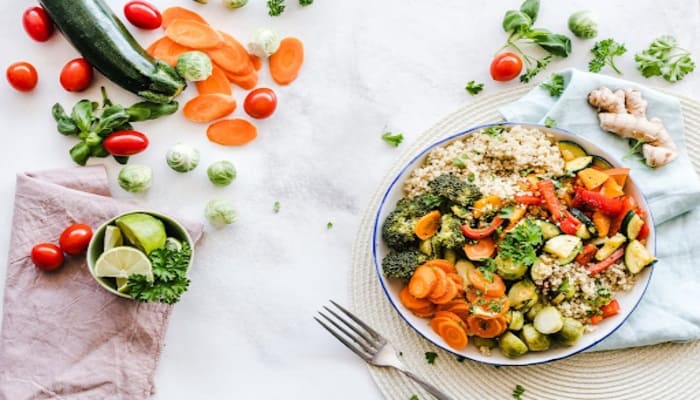In order to combat vitamin deficiency, we should eat a certain type of food that meets our daily needs for minerals and vitamins. For a healthy body and strong immunity, you need to take care of your diet, reduce stressful moments to a minimum, get enough sleep, stay hydrated, and be physically active. But sometimes even that is not enough. There are certain things that you can add to your daily diet that will contribute to your body. Read below what those things are.
Vitamin B50 TBL A100
One of the most significant health benefits of B complex vitamins is that they help maintain healthy nerves. Vitamins B1, B6, and B12 are particularly useful. These three vitamins help in the synthesis of neurotransmitters such as acetylcholine, serotonin, and norepinephrine, as well as in the formation of myelin (the protective layer that surrounds nerve cells).
Since the vitamins of the B complex are water-soluble and the body cannot create them on its own, we need to replenish them constantly. A simple and effective way to do this is to include Vitamin B50 tablets in our daily routine.
The bottle is packed with benefits for the nervous system (vitamins B1, B2, B3, B6, B9, and B12), but also for the rest of the body, since B complex vitamins are important for our metabolism, support cellular processes, growth, and energy consumption, and prevent fatigue.
Body Protection Compound-157
Body Protection Compound-157, or BPC-157, is a naturally existing peptide that can be detected in human gastric contents. The peptide, which has a structure of 15 amino acids, is also present in very small amounts in the gastrointestinal secretions of other animals. The peptide is essential for maintaining the GI tract’s lining. Moreover, the dosage for BPC-157 in other bodily functions is of importance to researchers, especially when it comes to muscle and tissue growth, neuroprotective effects, and healing. The part that BPC plays in gastric acid is crucial. It assists in preventing damage to the digestive tissues and can treat digestive problems and other wounds to the intestinal lining as a substance that can stimulate recovery.
Supplements in the Fight Against Stress
In addition to physical health, it is also necessary to take care of mental health. Many supplements help combat everyday stress and make life easier.
Magnesium has a beneficial effect on the entire organism, but it is especially good for improving the functions of the nervous system and achieving mental clarity.
B complex vitamins are excellent for alleviating the effects of everyday stress and restoring the normal functioning of the nervous system.
In addition to the classic vitamins and minerals, plant extracts are increasingly being used to alleviate the effects of stress and have a positive effect on anxiety. Valerian has been popular for years, and CBD (cannabidiol) and ashwagandha are becoming more and more important if we talk about supplements whose primary purpose is to reduce stress.
Plant Foods in the Diet
A diet pattern based on the use of plant products is a common way for healthy habits to become an integral part of the diet. Studies show that a plant-based diet reduces the risk of chronic diseases. A study published in August 2019 discovered that people who ate plant-based diets had a 16% lower risk of developing heart disease. This way of eating includes healthy fiber and nutrients like potassium, while limiting saturated fat and cholesterol intake. There are several ways of eating based on the use of plant foods. No animal products, raw vegan (use only raw food, no animal products), vegetarian (no meat), or even flexitarian (vegetarians who occasionally eat meat or fish).
Nutrition Plan and Healthy Habits for Children
The advice is to start with small and achievable goals. It is important to know that children copy the eating habits of their family members. If we avoid broccoli, we do not have to be surprised if the children refuse it. The advice is not to force children to eat certain foods. Make an effort to have lunch with the children and show them by your example that salad is a portion of great food. Instead of snacks with a lot of salt and sugar, choose fruits, almonds, walnuts, flax seeds, sunflower seeds, and pumpkin seeds.
The advice is not to be “trendy”, but to use a well-balanced diet, such as the Mediterranean diet, which reduces risk factors for cardiovascular diseases. The Mediterranean diet is based on fruits, vegetables, fish, and dairy products. The advice is to avoid fad diets, which are generally short-lived and unsustainable. Choose carefully, because sometimes the desire to be healthier can cause the opposite.


















